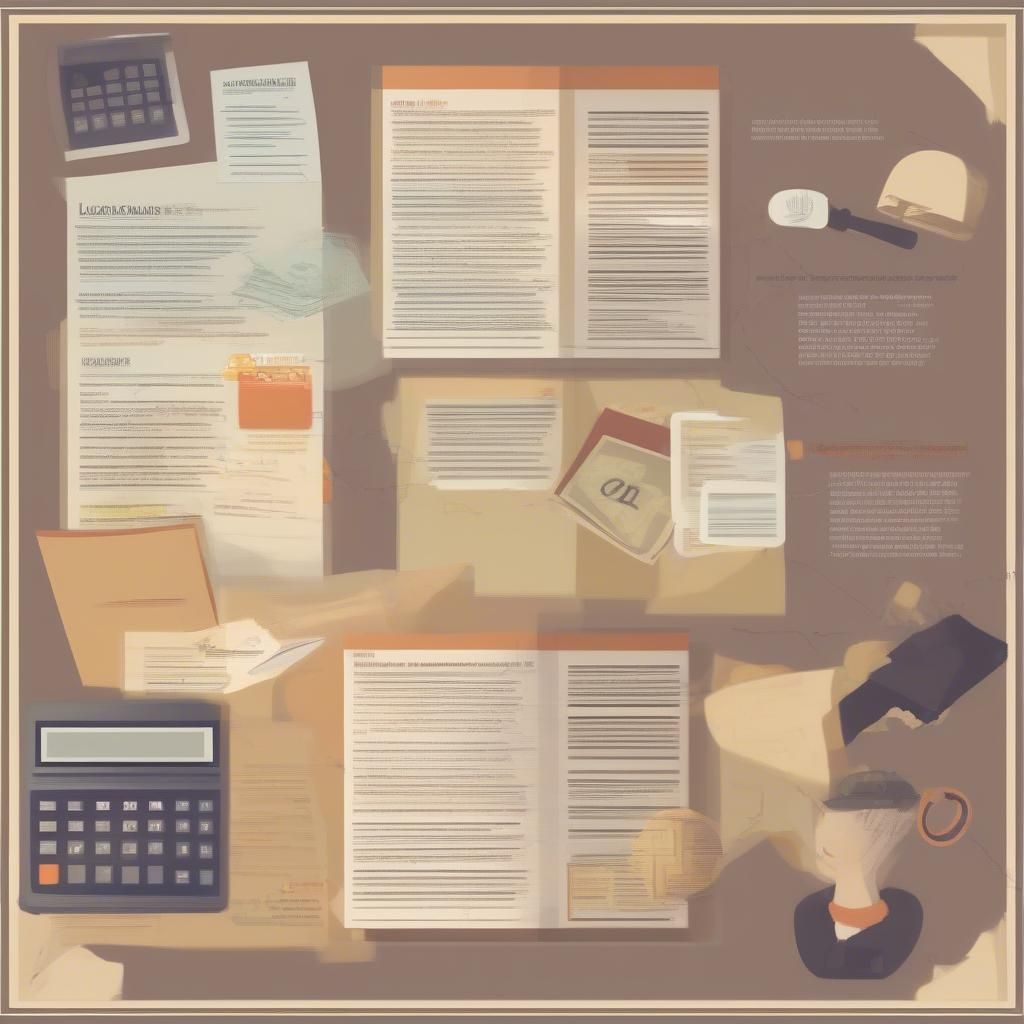Debt consolidation is a popular financial strategy that involves combining multiple debts into a single, larger loan. This can simplify your finances and potentially save you money on interest. One reputable lender offering debt consolidation loans is Bank of America. This article will provide a comprehensive guide to Bank Of America Debt Consolidation Loans, covering everything you need to know, from eligibility requirements to the application process.
Understanding Debt Consolidation and its Benefits
Before diving into the specifics of Bank of America debt consolidation loans, let’s first understand what debt consolidation is and how it can benefit you.
Debt consolidation involves taking out a new loan to pay off multiple existing debts, such as credit cards, personal loans, or medical bills. This leaves you with one single loan payment each month, making it easier to track your finances and stay organized.
Here are some key benefits of debt consolidation:
- Lower Interest Rates: By consolidating high-interest debts into a loan with a lower interest rate, you can save money on interest payments over the life of the loan.
- Simplified Repayment: Instead of juggling multiple payments with different due dates, you’ll have one fixed monthly payment.
- Improved Credit Score: Consolidating debt can potentially improve your credit score by reducing your credit utilization ratio.
 Bank of America Debt Consolidation Benefits
Bank of America Debt Consolidation Benefits
Bank Of America Debt Consolidation Loans: What You Need to Know
Bank of America offers a variety of debt consolidation loan options to meet different financial needs. Here’s an overview of their offerings:
Personal Loans: Bank of America personal loans can be used for debt consolidation, home improvements, or other personal expenses. These loans typically have fixed interest rates and terms, providing predictable monthly payments.
Home Equity Loans and Lines of Credit: If you’re a homeowner with equity in your home, you may qualify for a home equity loan or line of credit (HELOC). These loans allow you to borrow against the equity in your home, often at lower interest rates than personal loans. However, it’s important to note that your home is used as collateral for these loans, so it’s essential to make payments on time.
Eligibility Requirements for Bank Of America Debt Consolidation Loans
To qualify for a Bank of America debt consolidation loan, you’ll need to meet certain eligibility requirements. These requirements typically include:
- Credit Score and History: Bank of America considers your credit score and history when evaluating your application. A good credit score will increase your chances of approval and may qualify you for lower interest rates.
- Income and Employment: Lenders want to ensure you have a stable income to make loan payments. You’ll need to provide proof of income and employment history.
- Debt-to-Income Ratio (DTI): Your DTI is the percentage of your gross monthly income that goes toward debt payments. Bank of America typically prefers a DTI of 43% or lower.
Application Process
Applying for a Bank of America debt consolidation loan is a straightforward process. You can apply online, over the phone, or in person at a Bank of America branch. Here are the general steps involved:
- Gather Required Documents: You’ll need to provide personal and financial information, such as your Social Security number, driver’s license, proof of income, and a list of your debts.
- Choose the Loan Type: Decide whether a personal loan, home equity loan, or HELOC is the best option for your needs.
- Complete the Application: Fill out the application form accurately and completely.
- Review and Submit: Carefully review the terms and conditions of the loan before submitting your application.
Frequently Asked Questions (FAQs)
Q: Can I consolidate all types of debt with a Bank of America loan?
A: Bank of America allows you to consolidate various types of unsecured debt, such as credit card debt, personal loans, and medical bills. However, secured debts, such as mortgages or auto loans, may not be eligible.
Q: How much can I borrow with a Bank of America debt consolidation loan?
A: The loan amount you can borrow depends on your creditworthiness, income, and other factors. Bank of America offers personal loans up to $50,000 and home equity loans up to $800,000.
Q: Will consolidating my debt hurt my credit score?
A: Applying for a new loan can initially result in a slight dip in your credit score. However, if you make your loan payments on time, debt consolidation can actually improve your credit score over time by reducing your credit utilization ratio.
Q: What interest rates does Bank of America offer for debt consolidation loans?
A: Interest rates vary depending on factors such as your credit score, loan amount, and loan term. You can check current interest rates on the Bank of America website or by contacting a loan specialist.
Considerations and Alternatives
While a Bank of America debt consolidation loan can be a helpful tool for managing your finances, it’s essential to consider all your options before making a decision. Here are some alternatives to debt consolidation:
- Balance Transfer Credit Cards: Balance transfer credit cards offer introductory 0% APR periods, allowing you to pay off high-interest credit card debt interest-free for a limited time.
- Debt Management Plans (DMPs): A DMP is a program offered by credit counseling agencies that helps you negotiate lower interest rates and monthly payments with your creditors.
- Bankruptcy: In extreme cases of overwhelming debt, bankruptcy may be an option to discharge your debts or restructure your repayment plan.
Conclusion
Debt consolidation can be a valuable strategy to simplify your finances and potentially save money on interest. Bank of America offers a variety of debt consolidation loan options, including personal loans and home equity loans. By carefully considering your options and choosing the right loan for your needs, you can take control of your debt and achieve your financial goals. It’s always recommended to research and compare loan options from multiple lenders before making a decision.



